Popular Science

Sensitivity to pain may be linked to our inherited Neanderthal genes
Scientists are still not sure if carrying these ancient genetic variants and greater sensitivity to pain was an evolutionary advantage ...
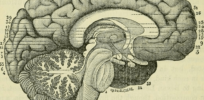
Brain atlas: First large-scale map of more than 3,000 human brain cells opens door to personalized medicine
We’re closer than ever to mapping the entire brain to the microscopic level. Hundreds of neuroscientists across the world recently ...
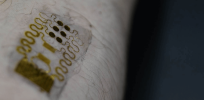
Smart bandage: This high-tech bandaid can monitor wound healing in real time
Millions of people dealing with diseases and suppressed immune systems are often forced to deal with chronic wounds—often minor injuries ...

Banana flavored beer? Gene edited yeast expands beer taste possibilities
Beer may have lost some of its past flavor. Beer had historically been brewed in open, horizontal vats, but the ...

Just add air and water: The simplest recipe for life on Earth
The origins of how life on Earth arose remains a deep existential and scientific mystery. It’s long been theorized that ...

As climate dislocations accelerate, here’s how genetically modified mosquitoes could offer lifeline to controlling dengue, Zika and other mosquito-vectored diseases
With insecticide resistance increasing and climate change priming the environment for longer breeding seasons and a wider geographic range, the ...

Replacing industrial produced fertilizers: Specially-bred soil-enriching bacteria poised to dramatically cut crop chemical inputs, protecting farms and the climate
[A]s the world’s demand for agricultural products has grown, the nutrients needed to grow all our crops has far outpaced ...

Popular Science weighs in on the GMO debate: ‘Food safety experts agree genetically modified organisms, from plants to animals, are safe for human consumption’
By January 2022, products that have been bioengineered, or have an ingredient in them that’s been bioengineered, will require a ...
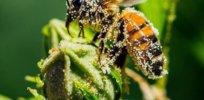
Synergistic effect of ‘agricultural chemical cocktails’ commonly used by farmers pose harm to pollinating insects
For bees, the threats are numerous, including habitat loss, climate change, and intensive agriculture. As fields of flowering plants are ...

When it comes to evolution, could humans be more impactful than nature?
The composition of our air and water is different from what it was even a few decades ago. There is ...
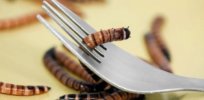
‘Future foods’: How kelp, maggots, fungus and other nutrients grown outside of the traditional agriculture system can help fight climate change
In a new perspective piece, researchers at the University of Cambridge’s Centre for the Study of Existential Risk explain that ...

How should trans athletes qualify for women’s sports?
In 2004, the nationally ranked long-distance runner [Joanna Harper] started hormone therapy (HT) as part of her transition to female ...

Prehistoric footprints offer snapshot of how our ancestors divided labor between men and women
Prehistoric footprints are a remarkable and precious source of evidence for the behavior and biology of ancient organisms, capturing a ...

Do you miss or spot Hollywood movie ‘continuity errors’? Here’s how ‘change blindness’ works
Gaze at the top image of Ben Franklin’s famous kite study. Now, the one below it. See the changes? You ...

Something’s fishy: We got arms, legs and other skeletal features from our aquatic ancestors
In his 20 years as an ichthyologist, [John Sparks has] seen a lot of fish—intact and not. He’s traveled to ...

Mongolians, and their gut bacteria, may be the key to solving lactose intolerance
[Archaeogeneticist Christina] Warinner was there to solve a mystery: Despite the dairy diversity she saw, an estimated 95 percent of ...

Why do humans have tailbones?
Though it’s currently useless, the human coccyx—commonly referred to as the tailbone—remains nestled at the bottom of the spine, a ...

Strep throat making a comeback? Bacteria developing resistance to our ‘go-to’ antibiotics
Strep is generally considered a known entity—with a known, reliable treatment. Then came two serious Strep A infections in Seattle, ...
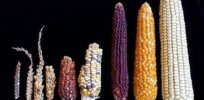
Wait, corn is a fruit? Yes—here’s the biology that explains why
We all know the is-a-tomato-a-fruit debate (correct answer: yes, but you still shouldn’t put it in a fruit salad). Now ...

‘The Intelligence Trap’: Book examines why smart people make irrational decisions
While decades of psychological research have documented humanity’s more irrational tendencies, it is only relatively recently that scientists have started ...

Sickle cell disease targeted with CRISPR therapy as ‘the only potential cure’
[F]or the first time, doctors in the United States used the gene editing tool CRISPR to attempt to remedy a ...

Can 23andMe’s consumer genetics test predict diabetes risk?
Adding to its roster of healthcare offerings, the direct-to-consumer genetic testing company 23andMe announced [March 11] that it can provide ...

Gene editing police? World Health Organization may take on the job
Who’s going to police CRISPR? That was the cry of many scientists after news broke at the end of last ...
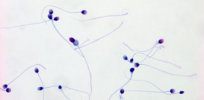
Unhealthy sperm often overlooked as cause of lost pregnancies
Doctors often recommend women who experience recurrent pregnancy loss, usually defined as three or more losses, undergo testing to try ...

Epigenetic clues could assist crime investigations by revealing age range, lifestyle habits of suspects
[The] field of forensic epigenetics [uses] the markers that sit on top of DNA and modify it’s expression, rather than the ...

Can a blood test find your body’s internal clock
Your body has a clock—and thanks to the travails of modern life, that clock may not line up with the timing ...
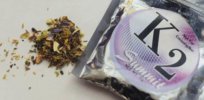
Synthetic marijuana has a real problem: Nobody knows what’s in it
[Recently], more than 70 people overdosed on the synthetic marijuana known as K2 during a single 24 hour period in New Haven, ...

Viewpoint: Here’s why it’s ‘moronic’ to suggest that Homo erectus was lazy
[Y]ou’ve probably seen a headline or two (or twelve) touting a new discovery about our long extinct human relative, Homo erectus ...

